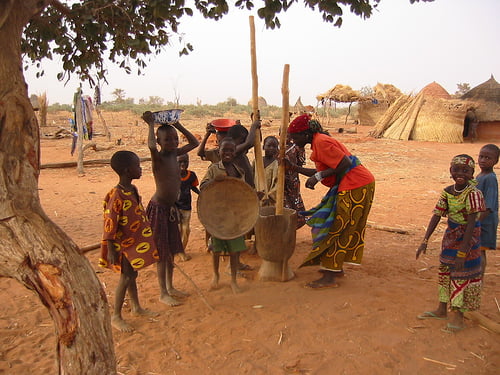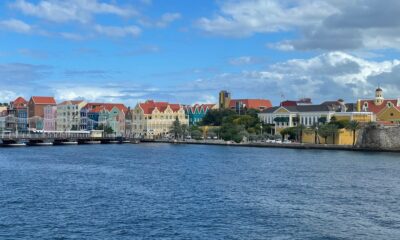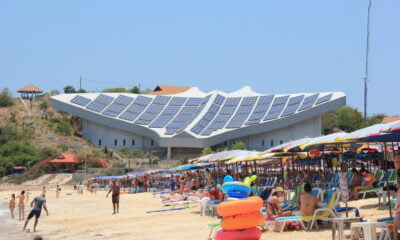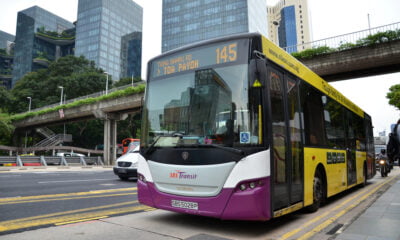

Economy
Sustainable tourism: an essential link in the world’s ‘value chain’
According to a report released last week by the United Nations Economic Commission for Africa (UNECA), as little as 22% of total tourism revenues land directly in east African communities.
The report, titled Towards a Sustainable Tourism Industry in Eastern Africa, recognises that the tourism industry is directly linked with economic and social development worldwide.
The comprehensive analysis plays an essential role in mapping development strategies for eastern regions of Africa and notes that, when well-managed, the tourism industry can create opportunities for small and medium-scale enterprises (SMEs).
The tourism industry has the potential to promote “awareness and understanding among different cultures, breeds a unique informal sector, helps to save the environment”, the report says, and creates valued linkages with local services and manufacturing sectors, as well as an abundance of employment opportunities.
A country’s economic prosperity is firmly linked to its social welfare provision. Ethical Traveler’s top ten destinations displays a trend in promoting the tourism industries of less economically developed countries worldwide.
However, the rundown states: “That none of the Millennium Challenge Corporation partner countries – typically some of the poorest in the world – actually made it on to the Ethical Destinations list this year points to a deep connection between economic and social health.”
Thursday’s progressive report focuses on the importance of a successful tourism market and the creation of a beneficial “value chain” of thriving enterprises and communities.
Ending poverty and suffering will require a multi-pronged approach, appealing also to east African governments to invest more in a sustainable tourism industry. In ‘cultural tourism’, local communities would play a bigger part in providing entertainment services, cultural education and also act as guides.
Can fast growing trends such as eco-tourism or adventure travel stand as a resilient solution to the poorest of the globe’s developing nations? At 20-25% growth per year, we are perhaps witnessing the fastest-growing tourism sector in the world.
Speaking on June 5 at an event called Seizing Tourism Market Opportunities in Times of Rapid Change, Taleb Rifai, secretary-general of the UN World Tourism Organisation (UNWTO), said, “There are two main challenges in tourism; the economic and the environmental, and the ‘centre of gravity’… The nature of our industry is that it is sensitive, but it is absolutely resilient.”
The conference also saw the special advisor on eco-tourism to the International Union for Conservation of Nature, Hector Ceballos-Lascurain, define the industry as environmentally responsible travel that provides social economic benefits to the local people.
He used the bird watching travel segment as a prime example of a thriving style of sustainable travel, one which it is important to facilitate.
“In the USA alone, there are 60m bird watchers making 25mtrips away from home to see birds each year”, he said.
“They are spending $25 billion to pursue this activity, and this supports 900,000 jobs.”
On May 12-13 this year, celebrations to mark World Migratory Bird Day 2012 (WMBD) emphasised the importance of cultural and environmental tourism. It stands as a prime example of a sustainable industry growing at a rate of knots.
WMBD, under the slogan, “Migratory birds and people – together through time”, highlighted a survey by the United States Fish and Wildlife Service which put the economic value generated by wildlife watchers at around US $32 billion per year in the United States alone.
For further reading on the subject, download our Guide to Sustainable Tourism here.
Further reading:
UK sustainable tourism honoured with green awards


 Environment12 months ago
Environment12 months agoAre Polymer Banknotes: an Eco-Friendly Trend or a Groundswell?

 Features11 months ago
Features11 months agoEco-Friendly Cryptocurrencies: Sustainable Investment Choices

 Features12 months ago
Features12 months agoEco-Friendly Crypto Traders Must Find the Right Exchange

 Energy11 months ago
Energy11 months agoThe Growing Role of Solar Panels in Ireland’s Energy Future




























